Women given contaminated blood after miscarriage and childbirth
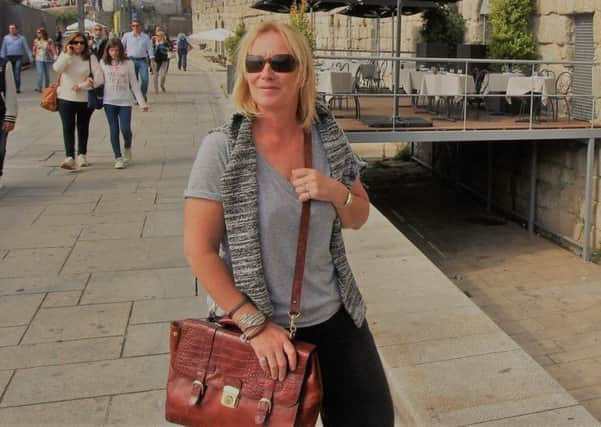

“INFECTED AFTER SUFFERING A MISCARRIAGE”
Paula Liddon suffered a traumatic miscarriage and was rushed to hospital for a blood transfusion.
Little did she realise the treatment meant to save her life was a double-edged sword and would leave her with debilitating health issues.
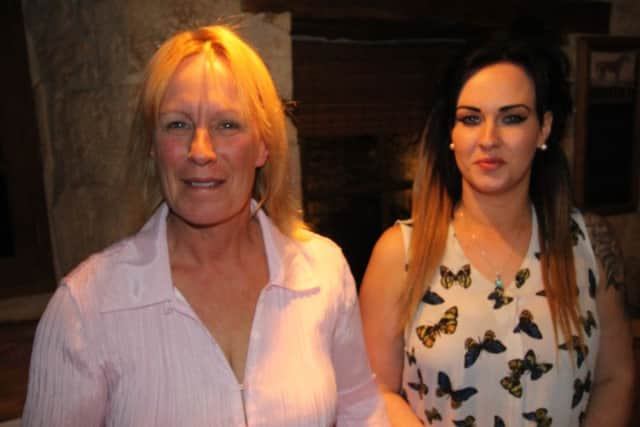

Advertisement
Hide AdAdvertisement
Hide AdPaula, now 53, was 26 at the time of the sudden miscarriage at four months of pregnancy and was admitted to Royal Lancaster Infirmary with significant blood loss.
Paula was given three units of blood, one of which was carrying the hepatitis C virus - something that she did not discover until five years later.
Paula recalls: “I never actually knew I had the virus until I was contacted in 1996 by the National Blood Authority.
“The letter stated I might possibly have hepatitis C as a result of the blood I received. But then the letter said: ‘Don’t worry, this is not AIDS’ as at that time, there was a big worry surrounding AIDS.
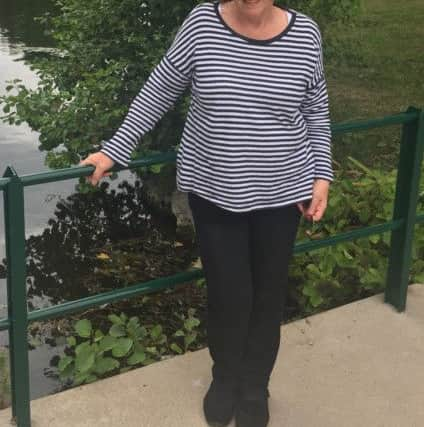

Advertisement
Hide AdAdvertisement
Hide Ad“Tests revealed I had the virus and this was the start of a nightmare that has ruined my life completely.”
At the time of the miscarriage and being given the blood, Paula had her daughter Emily, now 27, but had her son George, now 25, after having had the transfusion.
Paula says: “George had to be tested when he was only six as it was highly possible he could have contracted the virus from me.
“Fortunately he was negative. I made the decision soon after that to have a sterilisation due to the fact that if I got pregnant, that child might well be born with the virus.
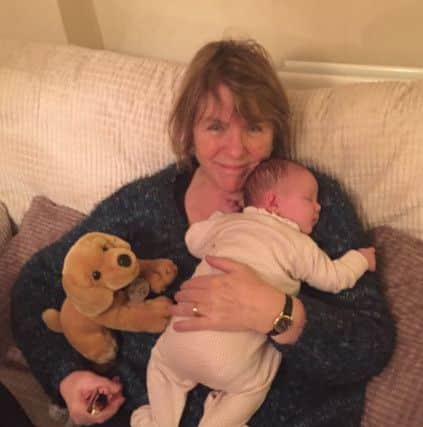

Advertisement
Hide AdAdvertisement
Hide Ad“However, when I re-married, I could not have children with my new husband and he had no children of his own.”
Over the coming years, Paula’s health deteriorated and she suffered fatigue, sickness and other complications and had to have regular liver biopsies.
In 2003, Paula was given the combination drugs Interferon and Ribiverin for six months which were the best at the time to clear the virus.
Paula remembers: “The treatment was horrific and made me feel so ill and awful.
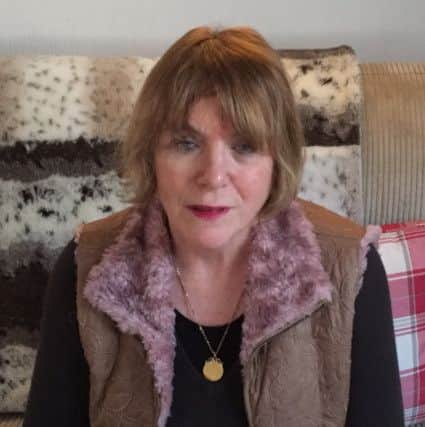

Advertisement
Hide AdAdvertisement
Hide Ad“At the time I started my treatment I was working for a county council and loved my work. But my first three months of taking Interferon were horrendous and I had a terrible reaction to the drugs and was in bed most of the time.
“My hair started to fall out and I was suffering from depression and felt suicidal at times.
“It not only affected my life but my husband as he had to look after me as well as my children.
“To top it off, I had to leave my job because my employers would not give me sick payments for more than three months.”
Advertisement
Hide AdAdvertisement
Hide AdPaula was living in Cumbria but moved to France to get away from it all and has been there for 13 years.
However, she is now looking to move back to the Lake District as she lives on a small farm in France but cannot physically run it.
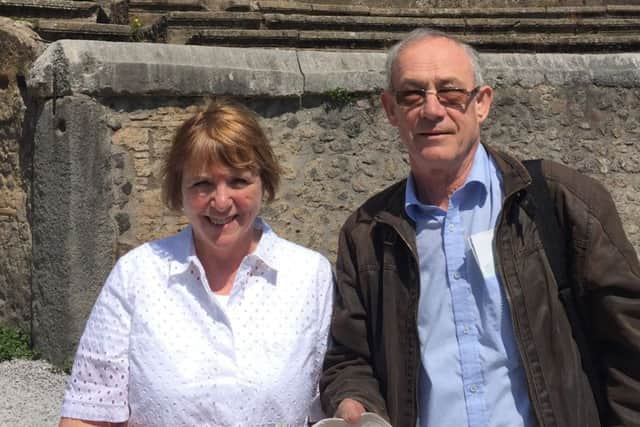

Paula is now clear of the virus but is still suffering as she has rheumatoid arthritis which was brought on by the hepatitis C and various other complications.
Paula says: “I am one of the lucky ones to still be here as there are so many people that have lost their lives through being given contaminated blood by the Government and now we survivors want answers and justice for all involved.
Advertisement
Hide AdAdvertisement
Hide Ad“The hospital said that if they had not given me the blood, I would have died.
“But they should have been screening it to make sure it was not infected.
“The Government at the time is to blame for this and they need to own up to what happened and compensation needs to be paid to all the victims.
“We are now waiting for the promised inquiry to start. Hopefully, this will reveal the truth and lead to justice.”
“DIAGNOSED AFTER SUFFERING A BRAIN HAEMORRHAGE”
Advertisement
Hide AdAdvertisement
Hide AdGiving a leaving talk at work, Colette Halkon felt a terrible pain in her head.
Colette, now 65, was 60 at the time and after being admitted to hospital, doctors discovered she had suffered a cerebral brain haemorrhage.
Colette, who is married to David and has five children, says: “An MRI scan found an area of blood in the back of the brain.
“Luckily, it was a small encapsulated area so did not do as much damage as it could have done.”
Advertisement
Hide AdAdvertisement
Hide AdWhile Colette was in hospital, doctors told her they had found she had strange liver function results and asked if she was a heavy drinker.
Colette, whose mother was born in Preston and lived in Walton-le-Dale, says after being discharged, her GP sent off for different tests to see what was happening with her liver and discovered she had hepatitis C.
Colette, who has children Michael, 37, Ellen, 35, Richard, 33, Daniel, 28 and Lucy, 25, says: “Hepatitis C is a disease that you get through blood and often people get it because they share needles through drug use.
“My GP knew me well and knew this was not the case. We looked at other possibilities and there did not seem to be any other explanation than a blood transfusion I had after one of my children was born in 1982.”
Advertisement
Hide AdAdvertisement
Hide AdAfter giving birth to daughter Ellen, Colette had suffered a post partum haemorrhage and was given three units of blood.
However, she had no idea it was contaminated and only found out inadvertently after the brain haemorrhage five years ago.
Colette says: “It was very frightening and shocking and then I felt: ‘How can I have got this?’
“I was referred to hospital and the assumption was that you have somehow contaminated yourself.
Advertisement
Hide AdAdvertisement
Hide Ad“I felt dirty that people would make this assumption about me and I felt I had to fight my corner to prove this was not the case.
“The hospital acknowledged I was not a drug user and the only explanation was that I had got it through contaminated blood in the blood transfusion I had was after Ellen was born.”
Colette who worked at a sixth form college in Manchester but has now retired, had to have six months of anti-viral treatment for the hepatitis C.
However, the damage had already been done to her liver and it was inflamed and had residual fibrosis.
Advertisement
Hide AdAdvertisement
Hide AdColette says: “I was very lucky as there are six different strains of hepatitis C and I had type three which tends to respond better to the therapy than the other types.
“After six months of the treatment, the virus reduced in my system quite drastically.
“Most of the problems I have now are psychological.
“I get a lot of anxiety. I think every little ache, pain and twinge is associated with the hepatitis C and I worry about getting ill again.”
Colette feels angry at receiving contaminated blood and feels there has been a cover-up.
Advertisement
Hide AdAdvertisement
Hide AdShe says: “It does make you feel less confident in decisions the NHS make.
“The thing that is most upsetting about it is that people knew about this and still gave the contaminated blood to patients.
“I don’t feel angry with the NHS, I feel angry that there seems to have been a cover-up and there were people higher-up who knew this blood was contaminated.
“I could have been told about many years ago that I had a batch of contaminated blood and could have been tested and treated much earlier before things got so bad.
Advertisement
Hide AdAdvertisement
Hide Ad“There frightening thing is that there may be a lot of people who are still walking around not knowing they have hepatitis C.
“If you did have a blood transfusion any time during the period of the early 80s to 90s, it would definitely be worth getting tested.
“When I was diagnosed, I was worried I might have inadvertently contaminated my children or my husband. They have all been tested and luckily, they are fine.”
Although Colette welcomes the announcement made last July by Prime Minister Theresa May that there will be a full inquiry into the scandal and that High Court judge Mr Justice Langstaff will be the full-time chairman of the contaminated blood scandal independent inquiry from May 1 after retiring from the High Court, she thinks it is long overdue,
Advertisement
Hide AdAdvertisement
Hide AdShe says: “I am very pleased this inquiry is happening. But it is long overdue.
“I just feel bad for the people who are very poorly and who might not live to see the outcome.
“The most important thing for this inquiry is for people to come forward and say what their role was in the decision making and explain why these products came into the health service.
“When they knew the blood was contaminated, why did they not do more to stop it?
“The truth about what happened has never been uncovered.
“The people who made these decisions need to come clean and at least give an explanation and be held to account.”